| The sciencific method | 6 aug.2008 |
Being a descendant of philosophy, there is much debate among philosophers about science. The fact that science is so highly successful and has such a big influence on society may also be a factor, though that would be something of a surprise because philosophers and other intellectuals do not seem to have learned anything from science.
Within science itself there is not much debate about its methods - scientists
knows this pretty well by themselves. But it indeed is an issue within
education, especially the education pointed to future scientists. One could
organize an costly research project into this, but modern times much such a
thing much simpler - especially due to the American preference to putting things
into diagrams and pictures.
Below are reproduced about half of the results of a google-pictures search using
the keywords "scientific method". Please have a first look at the various
individual diagrams, starting with the one we have used on the remainder of this
website - the figures are in a rather large scale, since further reduction gave
unsatisfactory results:
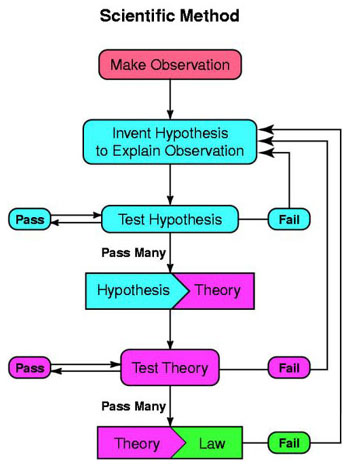 Earth Sciences, Lecture 1 |
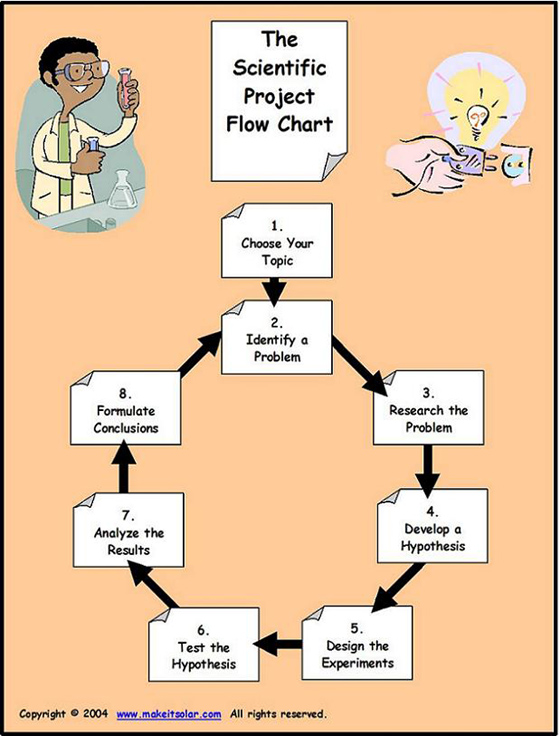 www.makeitsolar.com |
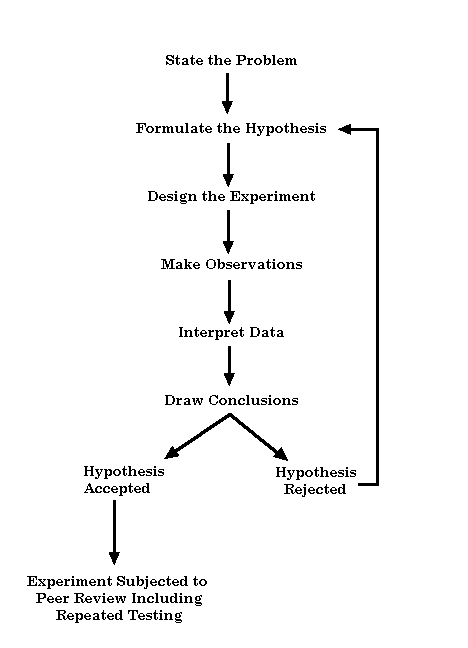 www.forks.wednet.edu |
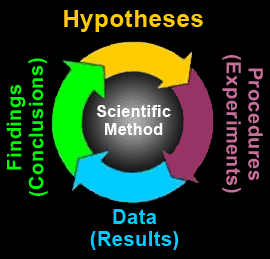 www.thwink.org |
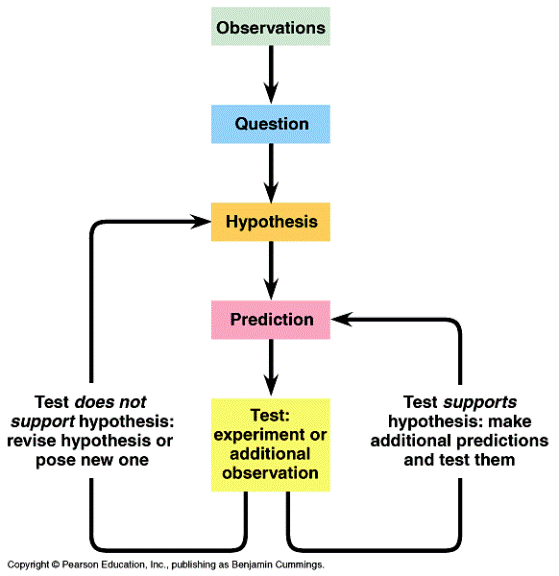 kentsimmons.uwinnipeg.ca |
 phyun5.ucr.edu |
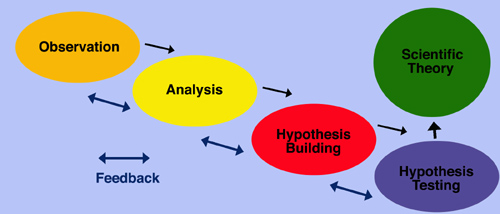 www.indiana.edu |
 users.stlcc.edu |
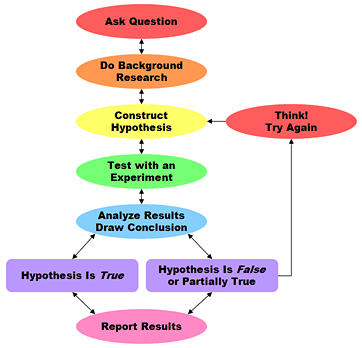 www.eas.slu.edu |
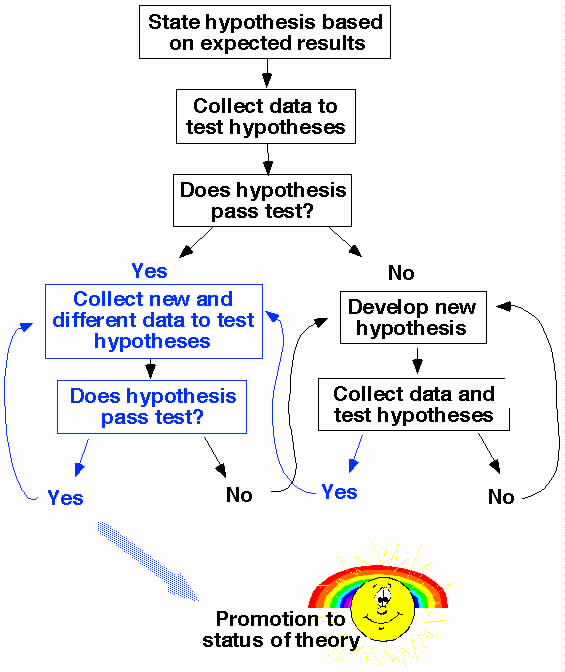 geoweb.tamu.edu |
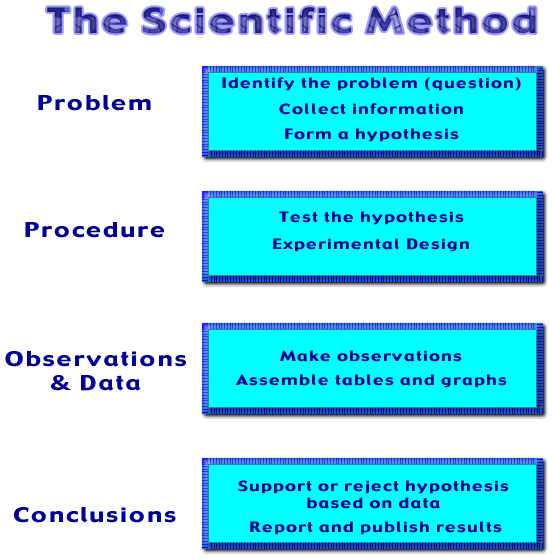 www.biologycorner.com |
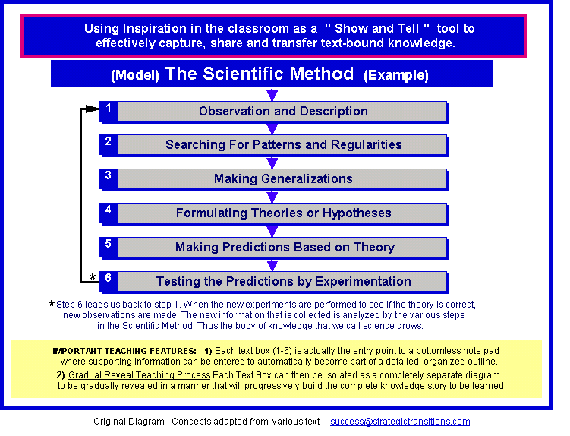 www.strategictransitions.com |
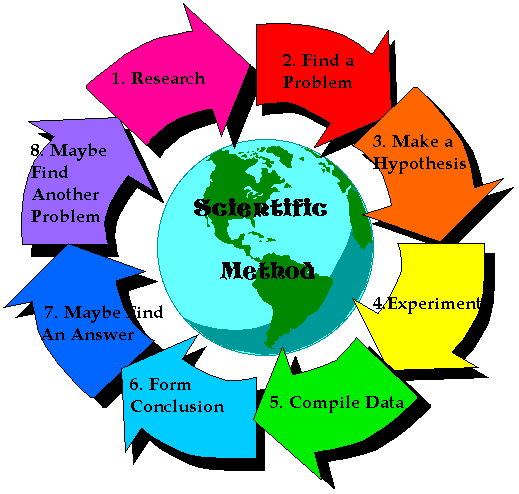 www.calvertnet.k12.md.us |
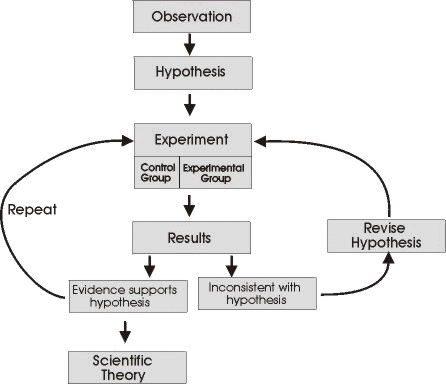 www2.nau.edu |
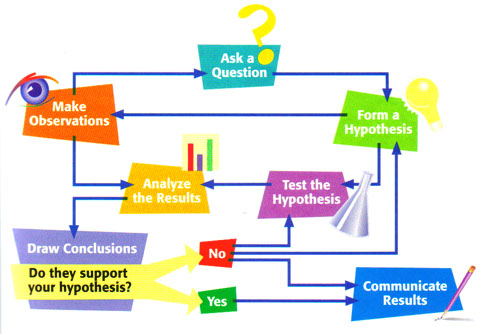 www.mrjworld.com |
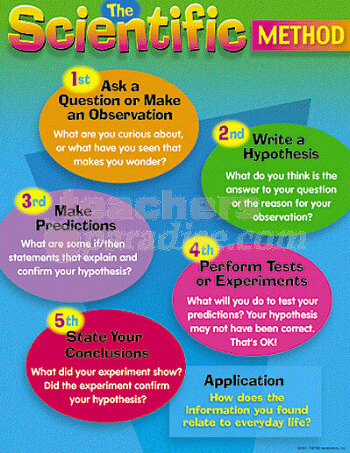 www.teachersparadise.com |
Each separate designer has found his own solution. Some
of them have omitted details found in others designs, probably to gain clarity
and/or simplicity. But there is no doubt that each of these diverse diagrams
describe one and the same thing - a thing of which the first diagram seems to
give the most complete representation.
The almost inescapable conclusion is that there is just one scientific
method, and anybody with common sense and some knowledge about science knows
what it is - see for example how well the psychologist Wendell Johnson was aware
of it in 1946, see here
![]() .
.
However note that this does not say, and does not mean to say, that every individual scientist, or even every discipline, does follow this model in its entirety. The first statement follows from the fact that there exist, for example, experimental en theoretical physicists. The second statement reflects that in many disciplines there is no sufficiently adequate theoretical model. The crucial point is that one strives to adhere to this model of scientific method.
Go to General semantics list
here
![]() , all
articles here
, all
articles here
![]() , site home here
, site home here
![]() .
.